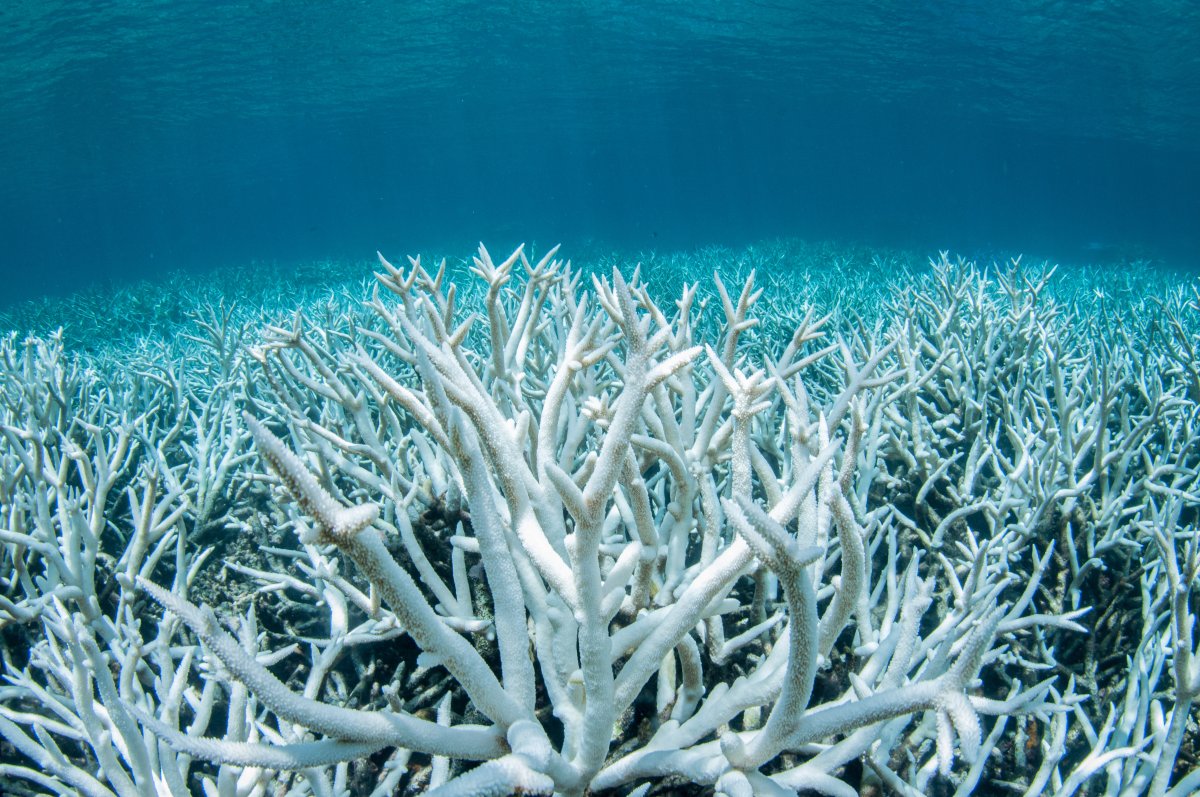Just two years after the last recorded mass bleaching event, Australia’s Great Barrier Reef is suffering widespread bleaching due to high ocean temperatures, reported a government agency on Friday.

The Great Barrier Reef Marine Park Authority (GBRMPA), the organization responsible for the management of the world’s largest reef ecosystem, reported the bleaching detected is “widespread but variable, across multiple regions, ranging in impact from minor to severe.”
According to the U.S. National Ocean Service, coral bleaching occurs when corals (which are living creatures) experience stress due to environmental factors like temperature, light level or changes in nutrient availability. Bleached coral is not dead, but is under greater stress and subject to higher mortality rates.
“The past week has brought cooler temperatures to the Reef bringing an end to the heatwave conditions of late February and early March,” wrote GBRMPA.
“Despite this, sea surface temperatures remain above average across most of the Marine Park and are expected to remain so until the end of March.”
GBRMPA wrote the bleaching is “consistent with the patterns of heat stress experienced on the Reef this summer.”

Get daily National news
“Weather patterns over the next few weeks will be critical in determining the overall extent and severity of coral bleaching across the Marine Park,” said the authority.
The GBRMPA is conducting aerial surveys of the marine park in the Far Northern Great Barrier Reef (including Torres Strait), to the north of the city of Townsville and offshore from the town of Bowen.
The most heavily impacted areas of the reef are around the Townsville region. There have already been reports of early mortality among coral where heat stress has been the greatest, the report read.
Rising ocean temperatures — caused by climate change — have caused three mass bleaching events along the reef in 2016, 2017 and 2020.
The previously occurred bleaching has already damaged two-thirds of the coral, as reported by AP.
The GBRMPA report was released just three days before a United Nations delegation is due to assess if the reef’s World Heritage listing should be downgraded because of the impact of climate change.
The Great Barrier Reef is a World Heritage Site, meaning the the United Nations Educational, Scientific, and Cultural Organization (UNESCO) World Heritage Committee has deemed the reef a “natural or cultural site that demonstrates influence or significance in a global context.”
Last year, Australia was able to avoid UNESCO changing the reef’s World Heritage status to “in danger” from climate change damage. Placement on the “in danger” list is meant to encourage corrective action.
Richard Leck, head of oceans at WWF Australia, told The Guardian bleaching of the reef could be directly attributed to global heating caused by rising greenhouse gas emissions.
“Reducing Australia’s domestic and exported emissions fast, this decade, is the main solution within our control,” he said.
To do this, global warming temperatures must be limited to an increase of only 1.5 C.
Dr Zebedee Nicholls, one of the scientists who worked on the GBRMPA analysis, also told The Guardian, “The science is clear: the outlook for coral reefs around the world is bad at 1.5C, and their fate is all but sealed at 2C.”
A U.N. delegation will inspect the reef’s health next week.
— With files from the Associated Press













Comments